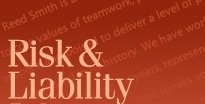Further comment on CFS Bakel vs. Stork Titan
Traditionally, the Dutch take a liberal approach regarding patentees (or other right holders, for that matter) for sending a warning letter to the competition (which is considered to be the first step in the enforcement process). In 2001, the Dutch Court of Appeal confirmed the rather strict test for the unlawful issuance of warning letters: the mere fact that a patent was ultimately revoked did not necessarily mean that the enforcement of the patent was unlawful. The patentee would be at risk of a claim that the enforcement was unlawful (only) if it knew or ought reasonably to have known at the time of issuing the threat that its patent was not valid [1].
In the Supreme Court decision in CFS Bakel vs. Stork Titan B.V., the test appears to have been somewhat revised, in that the patentee's assumed knowledge has now shifted from the fact that the patent is invalid to the fact that there is a serious, not negligible chance that the patent will not be maintained in opposition or revocation proceedings.
While one could argue that in any patent case there is a serious, not negligible chance that the patent is invalid, it does not appear at all to have been the aim of the Supreme Court to hold a patentee liable per se for its action for the very reason that the patent is being revoked in the end (with the implication of an inherently serious, not negligible risk that this would happen which the patentee knew or should have known). Contrary to that, in the grounds of its decision, the Supreme Court refers back to its own decision of 1962 [2] in which it was held that to make the act of issuing a writ of warning unlawful it is not sufficient that the pretension embodied in the writ proves incorrect in retrospect (either the asserted patent being (partially) revoked and/or the patent not being infringed); it required that blame for this act can be attributed to the patentee.
Subsequently, the Supreme Court refers to the regimes in Germany and the United Kingdom as regards issuing warning letters, and concludes that in neither of those countries it is accepted that a patent proprietor who has invoked his patent, is liable to compensate the damage suffered by his competitors or others as a result of this act, on the mere ground that the patent is subsequently revoked or annulled; the regime in both countries equally requires that some sort of blame can be attributed to the patentee, according to the Supreme Court. On the basis hereof, the Supreme Court holds that the patentee who invokes a pre-examined patent which is subsequently revoked or nullified acts unlawfully if he knows, or ought to be aware, that there is a serious, not negligible chance that the patent will not be maintained in opposition or revocation proceedings.
In its decision making, the Supreme Court for the larger part has followed the opinion of the Advocate-General Huydecoper. The Advocate-General in his opinion emphasizes that given the fact that the patent survived examination before the European Patent Office – which requires quite considerable efforts from the later patentee, and particularly serves the interests of the competition – 'one can not ask much more' from a patentee to verify that its patent is valid. The Advocate-General makes an exception to the rule, however, in case the later patentee withheld relevant information from the patent office, or acquires new information after grant which sheds a new light on the validity of the patent as granted. Unfortunately, the Supreme Court did not rule on these particular aspects. It therefore remains to be seen whether the Supreme Court decision is to be interpreted in accordance also with this part of the AG's opinion (which would definitively constitute a shift in case law).
Francis van Velsen, Simmons & Simmons (Rotterdam, Netherlands)
[2] Drefvelin-v-Wientjes, Supreme Court, 6 April 1962, NJ 1965/116



No comments:
Post a Comment